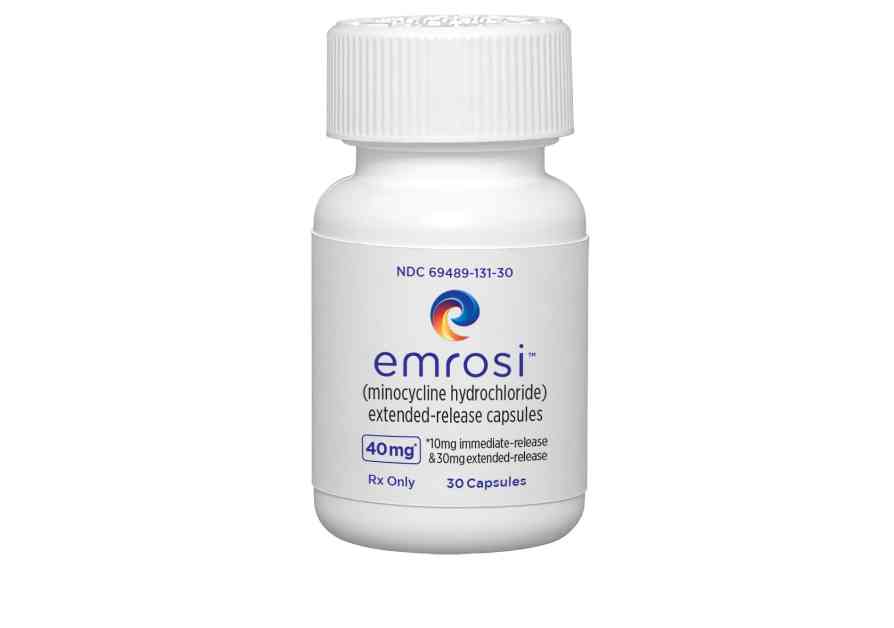The Food and Drug Administration recently approved Emrosi™ (minocycline hydrochloride extended-release capsules) as a treatment for inflammatory lesions (papules and pustules) associated with rosacea in adults. This new approval comes after the successful completion of two phase 3 clinical trials that evaluated the effectiveness and safety of Emrosi in treating moderate to severe papulopustular rosacea in a total of 653 adult participants.
During the trials, patients were randomly assigned to receive Emrosi 40mg, doxycycline 40mg, or a placebo once daily for 16 weeks. The primary goals of the trials were to measure the proportion of patients who achieved treatment success according to the Investigator’s Global Assessment (IGA) criteria and the change in total inflammatory lesion counts from baseline to week 16.
Results from the trials showed that a higher percentage of patients treated with Emrosi achieved treatment success compared to those in the doxycycline and placebo groups. Additionally, the mean absolute change from baseline in inflammatory lesion counts was greater in the Emrosi group than in the other groups.
The most commonly reported adverse reaction during the trials was dyspepsia. Emrosi is supplied in the form of a 40mg extended-release capsule and is expected to be available for use in the first quarter or early second quarter of 2025.
This approval marks an important milestone in the treatment of rosacea, providing healthcare providers and patients with a new option to manage the inflammatory lesions associated with this condition. Emrosi’s approval offers hope for individuals suffering from moderate to severe papulopustular rosacea, potentially improving their quality of life and skin health.
Moving forward, it will be essential for healthcare professionals to stay updated on the availability and use of Emrosi to ensure that eligible patients can benefit from this newly approved treatment option. By incorporating Emrosi into their practice, providers can offer comprehensive care to individuals with rosacea and help them achieve clearer and healthier skin.
Overall, the approval of Emrosi represents a significant advancement in the field of dermatology and highlights the ongoing efforts to develop innovative therapies for chronic skin conditions like rosacea. As additional research and clinical experience with Emrosi accumulate, further insights into its long-term efficacy and safety profile will likely emerge, informing future treatment recommendations and guidelines for rosacea management.
